Introducing user research to your organization
In a way that makes colleagues care
👋🏻Hi, this is Nikki with a 🔒subscriber-only 🔒 article from User Research Academy. In every article, I cover in-depth topics on how to conduct user research, grow in your career, and fall in love with the craft of user research again.
How many times have you sat through a presentation and thought either:
"This could have been an email."
or
"Why is this relevant to me?"
As humans, especially working humans, who have limited time to spend on meetings and work per week, that second question is incredibly important to answer.
Whenever we give presentations, whether it be a report, a follow-up, a kick-off, an educational piece, or anything in between, it is the presenter's responsibility to ensure their audience is relevant and gets something out of the presentation.
With that said, how many times have you presented something to colleagues to watch their eyes grow heavy? To see them glance at their computer more and more often? To see them completely lose interest in whatever you are presenting?
I hope I'm not alone when I say this has happened to me all too often!
My first presentation about user research was a bit of a mess. As someone new to the field, I struggled with articulating the value of user research and the impact it could have. So, instead, I talked about how to properly conduct user research, which was also a bit of a shit show because I didn't even know how to conduct it properly.
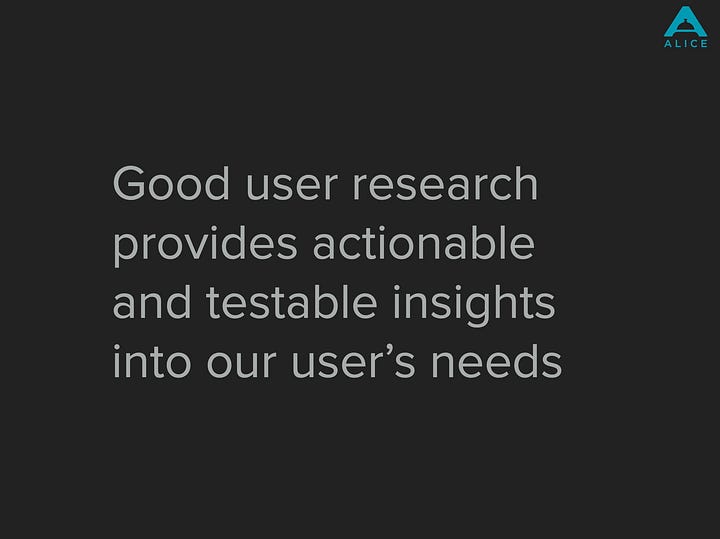
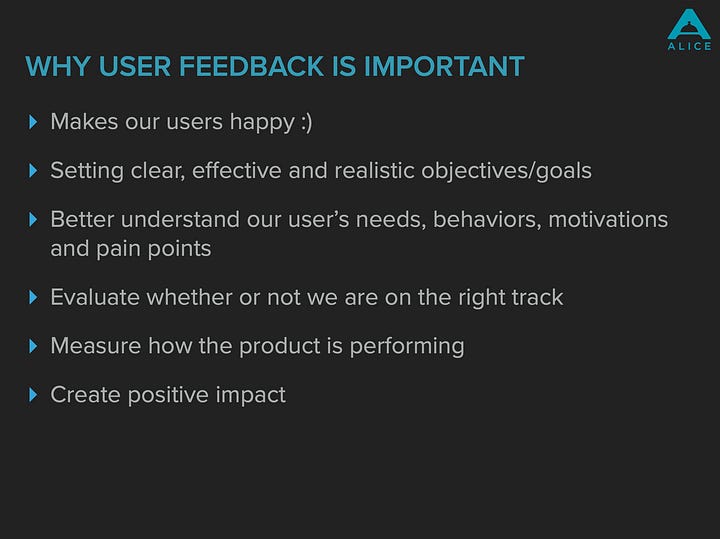
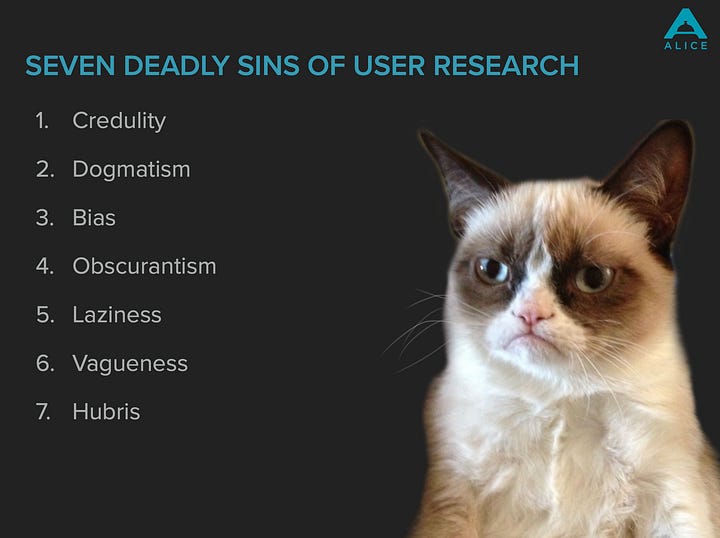
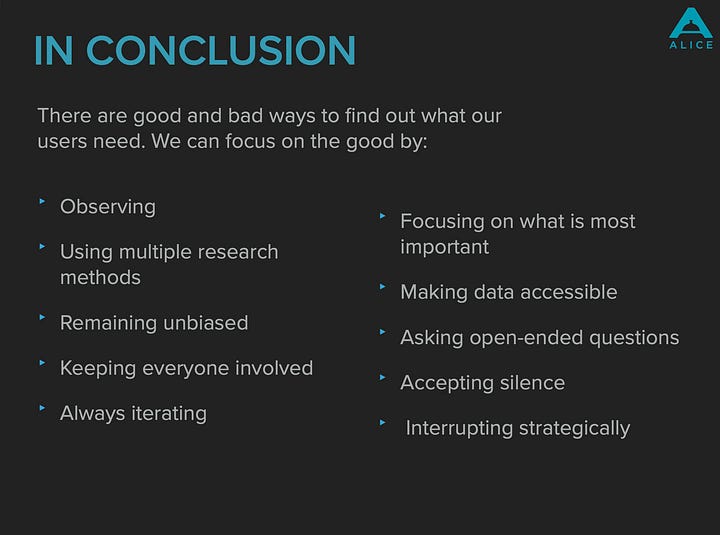
The thing is, we are specialists. We love our field. We love user research. We believe it is one of the, if not the, most critical parts of the product development process.
But not everyone feels that way.
Product managers are busy tying together the product and business. Designers are busy trying to understand how to design something functional and experiential. Developers are busy trying to ship something worthwhile. Marketing is busy trying to get a larger share of the market. Sales are busy trying to get more people on the product. Account managers are busy trying to help customers through challenging situations and align with products. Customer support is busy fixing customer problems as efficiently and effectively as possible.
We all have a lot on our plate, so sometimes, when we try to convey a topic without relating it to how it can help others in their jobs, we fail.
My biggest mindset shift
I went on from that first role and continued refining my presentations, but I still felt they fell short.
I changed my tune and went hard into creating a user research framework, focusing on the three E's:
Ease of use
Effectiveness
Emotion
In this framework, I talked a little more about the actual mechanisms of measuring data through user research, specifically usability testing, and how that would help us make more informed data-driven decisions.
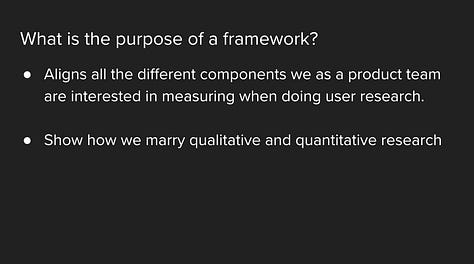
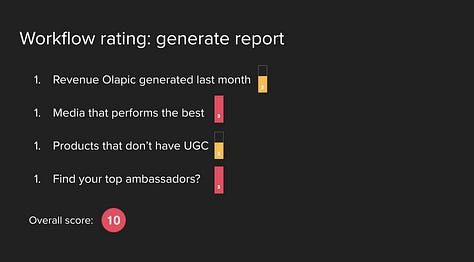
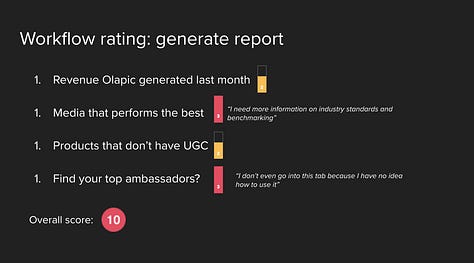
I worked for a while on this presentation - blood, sweat, and tears style - and tried to make it perfect. However, I was disappointed when I presented it. Luckily it was a short presentation (I had learned that was best), so there wasn't too much eye-glazing. My colleagues nodded along, but none came when it was time for questions. And after, everyone just went about their days.
The presentation didn't do anything. Nothing changed. No one came up to me with a big revelation. It was just business as usual. People still struggled with how to connect user research with their roles.
And that's when it finally hit me.


